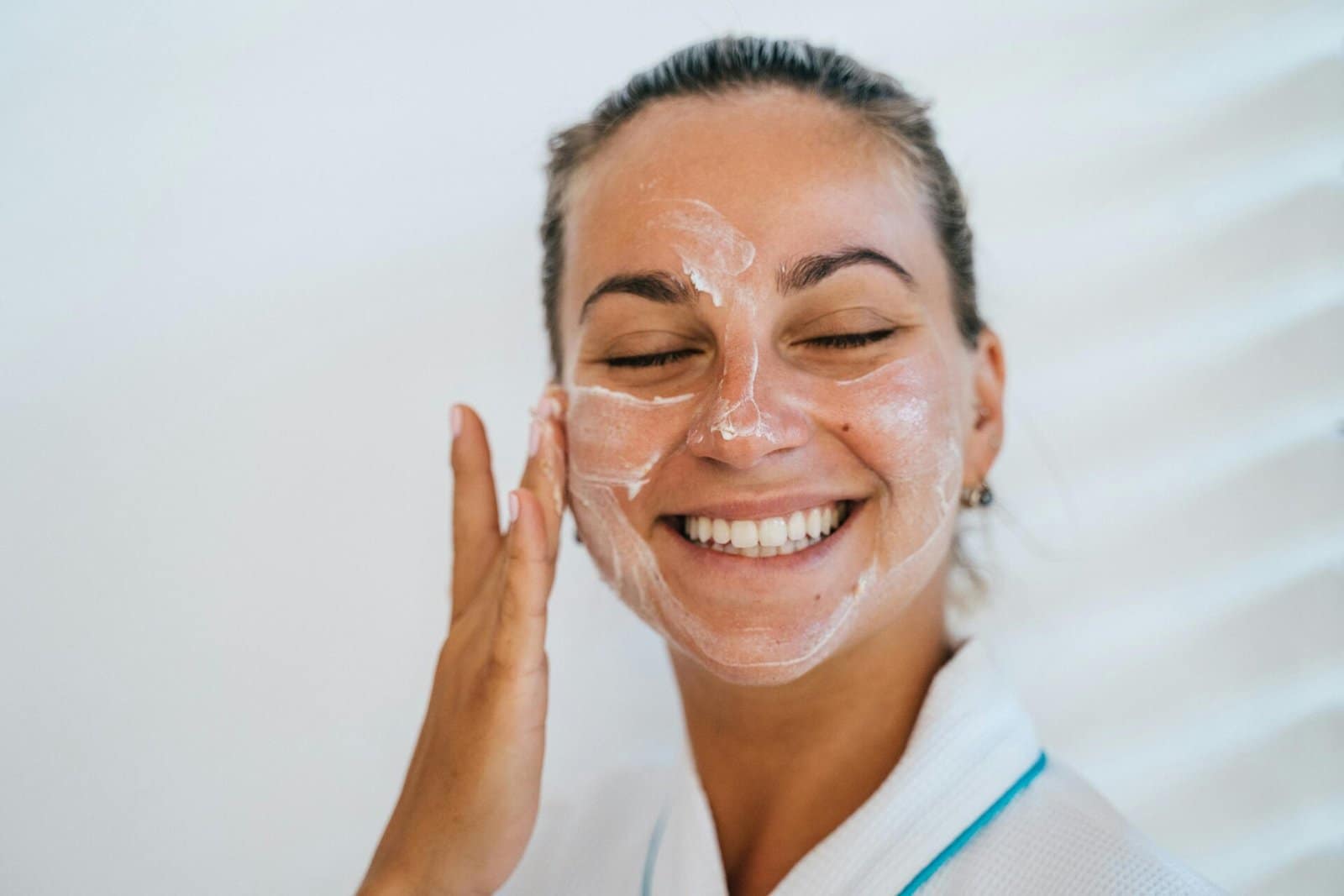Top 10 Natural Ways to Get Glowing Skin!
Glowing skin is more than just a beauty trend, It’s a sign of good health, balance, and care. When your skin radiates naturally, it reflects what’s happening inside your body. A healthy complexion suggests you’re well-hydrated, eating right, and maintaining a clean lifestyle. It’s not about perfection; it’s about vitality, brightness, and being at ease in your own skin.
Unlike synthetic treatments or harsh products that promise overnight results, natural methods gently nurture your skin over time. They work in harmony with your body, promoting long-lasting beauty without side effects. Let’s explore the top 10 natural ways to get glowing skin, focusing on ingredients and habits that support you inside and out.
Tip 1:
Stay Hydrated All Day
Water is the most underrated beauty secret. It helps flush toxins, improve skin elasticity, and enhance cell regeneration.
How to hydrate for glowing skin:
- Drink 8–10 glasses of water daily (adjust for your activity level and climate).
- Eat water-rich fruits like cucumbers, watermelon, oranges, and celery.
- Sip herbal teas like green tea, chamomile, and hibiscus — they hydrate while fighting inflammation.
- Use a humidifier in dry weather to maintain skin moisture.
Bonus tip: Start your day with a glass of warm lemon water to support digestion and detoxification, both crucial for skin clarity.
Tip 2:
Cleanse and Detox Gently
Cleansing removes dirt, oil, and pollutants that clog your pores. But over-cleansing or using harsh soaps can strip your skin of natural oils.
Natural cleansing tips:
- Use mild cleansers made with aloe vera, rose water, or honey.
- Avoid alcohol-based toners or foaming washes that dry out your skin.
- Double cleanse at night first with oil (like jojoba), then with a gentle herbal cleanser.
Detox your skin weekly with herbal steams, clay masks, or a skin-friendly green smoothie rich in antioxidants.
Tip 3:
Exfoliate With Nature’s Best
Exfoliation helps remove dead skin cells, unclog pores, and boost cell turnover. Skip the synthetic beads nature has gentler answers.
Top 3 natural exfoliants:
- Sugar Scrub: Mix equal parts sugar and coconut oil. Gently massage in circles and rinse.
- Coffee Scrub: Combine coffee grounds with olive oil. Improves blood flow and leaves a healthy glow.
- Oatmeal Mask: Blend oats with honey and yogurt. Soothes while exfoliating gently.
Use these 1–2 times a week to avoid over-exfoliating, which can cause redness or irritation.
Tip 4:
Feed Your Skin With Superfoods
Your skin is a reflection of your diet. Foods rich in antioxidants and healthy fats nourish your body and enhance your complexion.
Best superfoods for glowing skin:
- Berries and citrus (Vitamin C)
- Leafy greens like spinach and kale (chlorophyll, iron)
- Nuts and seeds (Vitamin E and zinc)
- Omega-3s from walnuts, flaxseeds, or salmon
Cut back on sugar, dairy, and processed foods which can trigger acne and dullness.
Tip 5:
Moisturize Using Natural Oils
Natural oils offer deep hydration, protection, and essential nutrients — all without synthetic additives.
Try these plant-based moisturizers:
- Coconut oil: Best for dry skin. Apply at night for deep nourishment.
- Jojoba oil: Mimics your skin’s sebum, perfect for balancing oil production.
- Almond oil: Rich in Vitamin E and great for under-eye areas.
Apply after a shower or on damp skin to lock in moisture.
Tip 6:
Harness the Power of Aloe Vera
Aloe vera is a skin hero known for its soothing, hydrating, and healing properties.
Why aloe works:
- Rich in Vitamins C and E.
- Reduces redness, acne, and dryness.
- Helps in healing small cuts and sunburn.
Apply fresh aloe gel directly from the leaf, or blend it into your DIY moisturizer with lavender oil or rose water.
Tip 7:
Glow With Golden Turmeric
Turmeric is not just a kitchen staple it’s one of the best natural ingredients for brightening skin and fighting inflammation.
DIY turmeric mask:
- Mix 1 teaspoon turmeric powder with 1 tablespoon honey and 1 tablespoon yogurt.
- Apply to clean skin for 10–15 minutes and rinse.
- Use 1–2 times a week for an even, radiant tone.
Turmeric also reduces acne scars and pigmentation over time.
Tip 8:
Try Honey-Based Remedies
Honey is a natural humectant it attracts and locks in moisture. It’s also packed with antioxidants and antibacterial agents.
Best ways to use honey:
- Simple face mask: Apply raw honey directly to clean skin. Leave for 15 minutes.
- Brightening combo: Mix honey with lemon juice and aloe for a natural glow boost.
Honey works well for dry, acne-prone, or irritated skin.
Tip 9:
Sleep Your Way to Better Skin
Your skin repairs and regenerates while you sleep. Poor sleep leads to dullness, dark circles, and even breakouts.
Sleep tips for healthy skin:
- Aim for 7–9 hours of restful sleep.
- Sleep on a clean, soft pillowcase (ideally silk or cotton).
- Avoid screens 30 minutes before bed.
Use a light lavender or chamomile oil to help calm your senses for better rest.
Tip 10:
Manage Stress With Mindfulness
Chronic stress leads to hormonal imbalances, which can cause breakouts, dryness, or excess oil. Mental calm equals to skin calm.
How to reduce stress naturally:
- Practice yoga or deep breathing for 10 minutes daily.
- Journal, take nature walks, or meditate to clear your mind.
- Listen to calming music or audiobooks while winding down.
Less stress equals fewer flare-ups and a natural, peaceful glow.
Final Thoughts: Glow From the Inside Out
True glowing skin doesn’t come from just products or facials. It comes from consistency, clean living, and nourishing yourself from within. By choosing natural remedies, you support not just your complexion, but your overall well-being.
Start small, stay consistent, and remember, your glow is your story.
FAQs About Natural Glowing Skin
1. How long before I see results with natural skincare?
You may start noticing changes within 2–4 weeks, but full results often take consistency over 6–8 weeks.
2. Can I use coconut oil if I have oily skin?
Yes, but use sparingly. Jojoba oil is usually better for balancing oily skin.
3. Is turmeric safe for daily use?
For most people, yes, but limit it to 2–3 times a week on your face to avoid staining or irritation.
4. Are these methods suitable for sensitive skin?
Absolutely. Just patch-test first, especially with turmeric, citrus, or essential oils.
5. Does diet really affect my skin that much?
Yes. Nutrient-dense, whole foods improve skin elasticity, brightness, and clarity over time.
6. What’s the best time to apply natural treatments?
Evening is ideal. Your skin rejuvenates at night, and you avoid sun sensitivity from ingredients like turmeric or lemon.
Subscribe to our newsletter!







